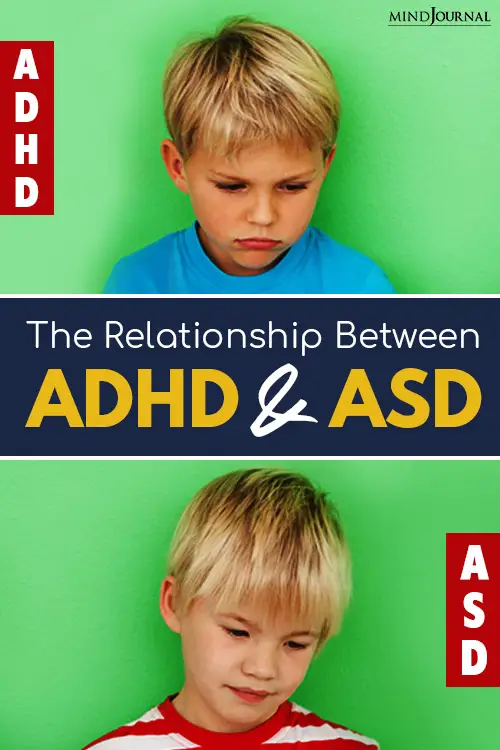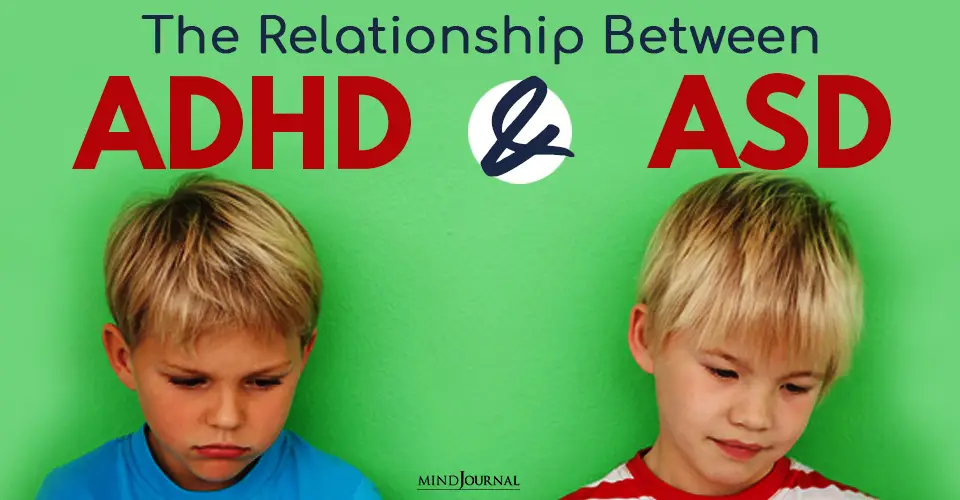The relationship between children with Attention Deficit Hyperactivity Disorder (ADHD) and Autism Spectrum Disorder (ASD).
Are you worried about your child’s hyperactive/ impulsive behaviour?
Is your child’s resistance to speak, bothering you?
You might not know that these are the signs and symptoms of early developmental disorders.
The common developmental disorders that are diagnosed are Attention Deficit Hyperactivity Disorder (ADHD) and Autism Spectrum Disorder (ASD).
People mostly assume these two disorders to be synonymous. But let me tell you it isn’t.
Attention Deficit Hyperactivity Disorder (ADHD)
ADHD is a neuro- developmental disorder characterized by hyperactivity, impulsivity and inattention. It can occur between the ages of 2-12 years.
Here are the signs that says your child has ADHD:
- Fidgeting with objects, things,
- Randomly running out of classroom,
- Violating classroom decorum,
- Blurts out answers even before the question is completed.
Children with ADHD are often disliked at social situations due to their disruptive behavioral manifestations. They are marked as ‘disobedient’, ‘arrogant’, ‘misbehaving’ and ‘destructive’.
They are not warmly welcomed at any parties, people resist their own children from getting closer to child with ADHD, fearing they might inflict damage and pain.
These might strike as humiliation to the parents of children with ADHD . As a result they displace their anger over them further aggravating it and reinforcing their behavior.
Underlying cause for this may be tracked down to the lack of awareness among the parents, refusal to accept the fact that your child has ADHD because of the stereotypical outlook by the society.
Proper treatment can reduce the maladaptive behavior of the child.
Medication works on parts of the brain to control impulsive behaviors, improves the power of attention and concentration.
Behaviour therapy is effective for children with ADHD. It is executed by focusing on behavior modification. Training parents in order to manage their child’s impulsivity can prove effective.
Read The Impact Of ADHD On A Child’s Schooling
Autism Spectrum Disorder (ASD)
Autism or Autism Spectrum Disorder (ASD) defines a condition characterized by an inability to establish verbal and social communication accompanied by repetitive behaviors.
Common signs and symptoms of autism can be summarized as:
- Deficits in social interaction, inability to initiate a conversation, comprehend or reciprocate feelings,
- Repetitive and restricted activities in terms of speech, body language,
- Lack of eye contact (only a fixed glance or stare),
- Lack of speech production.
Symptoms of autism mainly appears between 1-3 years of age.
The world for children with autism is a ‘glass shell’, reeling in their surreal world with chain of thoughts and actions. They fail to grasp any interaction you try to form or communicate.
To gratify their need for food, objects(toys), they engage in ‘hand-to- hand pointing’. They would come to you, hold your finger and point to their desired object. Receiving it they forget about your existence.
As a parent, you need to be cautious for their safety because ‘sense of security’ for them is invalid. They can’t sense any approaching danger or spot any phoniness persisting in the environment or within people.
You might frown seeing a child with autism, grimacing on someone’s death. You possibly mark the child as ‘disdainful’, ‘socially deviated’ but emotions for them is frozen. They are emotionally inappropriate or ‘apathetic’.
“He’s just like the rest of us – amazing in his own right, and no better or worse than anyone else.” –Darren Groth
Treatments for autism can vary across a wide range.
Medication can be helpful to control accompanied seizures and violent behaviour. According to studies, medication is useful along with behaviour therapy.
Therapy like play therapy, where the art of communication, self help skills are improved through various forms of play activity.
Read 14 Signs Your Child Is Struggling With Their Mental Health
Can ADHD and ASD occur co- morbidly?
It is not unusual if ADHD and ASD are mistaken as being the same or having similar symptoms. During the first few years from birth it is difficult to formulate a diagnosis for both ADHD and ASD.
Symptoms like an inclination towards minute items (parts of toys, wheels of a car) and inattentive nature and emotional numbness are common among both.
According to the Centers for Disease Control and Prevention (CDC), approximately 14 % of children with ADHD also have ASD.
Conclusion:
Research are in progress to decipher the real links between ADHD and ASD and their suitable remedies.
Parental awareness and embracing a positive attitude towards these disorders are key to their children’s welfare.










Leave a Reply
You must be logged in to post a comment.